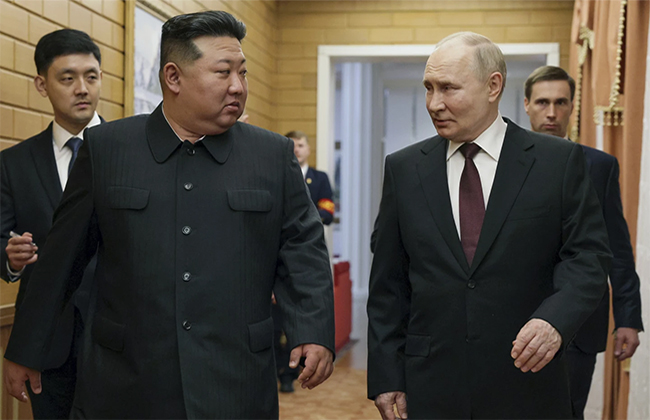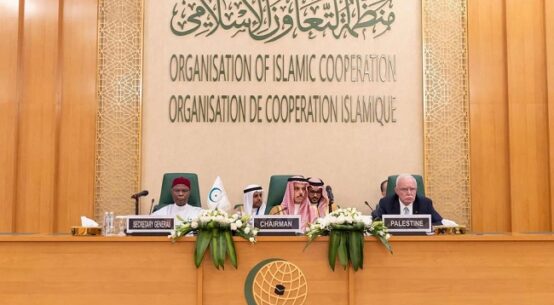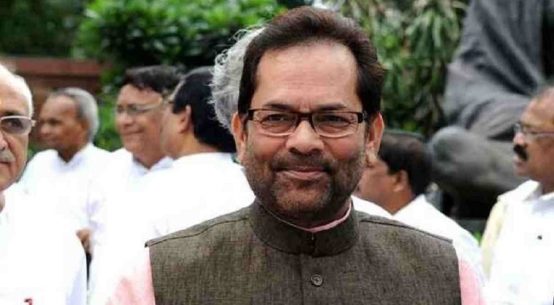
Russian President Vladimir Putin and North Korean leader Kim Jong Un met Wednesday in Pyongyang as they seek to expand their economic and military cooperation and display a united front against Washington.
Putin was met upon his nighttime arrival by Kim, who shook his hands, hugged him twice and rode with him from the airport in a limousine in a huge motorcade that rolled through the capital’s brightly illuminated streets, where buildings were decorated with giant Russian flags and portraits of Putin.
After spending the rest of the night at a state guest house, Putin attended a lavish welcoming ceremony at the city’s main square, where Kim introduced key members of his leadership including Foreign Minister Choe Son Hui; top aide and ruling party secretary Jo Yong Won; and the leader’s powerful sister, Kim Yo Jong. Putin and Kim Jong Un then began summit talks accompanied by their top officials, according to Russian media.
North Korean state media described the meeting between the leaders as a historic event that demonstrates the “invincibility and durability” of the two nations’ friendship and unity. Huge crowds lined up on the streets to greet Putin’s motorcade before the talks, chanting “Welcome Putin” and waving flowers and North Korean and Russian flags.
Putin, making his first trip to North Korea in 24 years, was quoted in official media outlets before his arrival as saying the two countries want to cooperate closely to overcome U.S.-led sanctions and actively develop thier partnership. He also said he appreciated North Korea’s firm support of his military actions in Ukraine. The Kremlin launched a full-scale invasion of the neighboring country in 2022.
Putin’s visit comes amid growing concerns about an arms arrangement in which Pyongyang provides Moscow with badly needed munitions to fuel Russia’s war in Ukraine in exchange for economic assistance and technology transfers that would enhance the threat posed by Kim’s nuclear weapons and missile program.
North Korea is under heavy U.N. Security Council economic sanctions over its nuclear weapons and missile programs, while Russia is also grappling with sanctions by the United States and its Western partners over its aggression in Ukraine.
Putin is being accompanied by several top officials, including Deputy Prime Minister Denis Mantrurov, Defense Minister Andrei Belousov and Foreign Minister Sergey Lavrov, according to his foreign policy adviser, Yuri Ushakov. He said a number of documents will be signed during the visit, possibly including an agreement on a comprehensive strategic partnership.
U.S. and South Korean officials accuse the North of providing Russia with artillery, missiles and other military equipment for use in Ukraine, possibly in return for key military technologies and aid. Both Pyongyang and Moscow deny accusations about North Korean weapons transfers, which would violate multiple U.N. Security Council sanctions that Russia previously endorsed.
Along with China, Russia has provided political cover for Kim’s continuing efforts to advance his nuclear arsenal, repeatedly blocking U.S.-led efforts to impose fresh U.N. sanctions on the North over its weapons tests.
In March, a Russian veto at the United Nations ended monitoring of U.N. sanctions against North Korea over its nuclear program, prompting Western accusations that Moscow is seeking to avoid scrutiny as it buys weapons from Pyongyang for use in Ukraine. U.S. and South Korean officials have said they are discussing options for a new mechanism for monitoring the North.
South Korean analysts say that Kim will likely seek stronger economic benefits and more advanced military technologies from Russia, although his more sensitive discussions with Putin aren’t likely to be made public.
While Kim’s military nuclear program now includes developmental intercontinental ballistic missiles that can potentially reach the U.S. mainland, he may need outside technology help to meaningfully advance his program further. There are already possible signs that Russia is assisting North Korean with technologies related to space rockets and military reconnaissance satellites, which Kim has described as crucial for monitoring South Korea and enhancing the threat of his nuclear-capable missiles.
Aside of sending military supplies to Russia to help its warfighting Ukraine, the North may also seek to increase labor exports and other illicit activities to gain foreign currency in defiance of U.N. Security Council sanctions, according to a recent report by the Institute for National Security Strategy, a think tank run by South Korea’s main spy agency. There will likely be talks about expanding cooperation in agriculture, fisheries and mining and further promoting Russian tourism to North Korea, the institute said.
In Washington, U.S. Secretary of State Antony Blinken said Putin’s visit to North Korea illustrates how Russia tries, “in desperation, to develop and to strengthen relations with countries that can provide it with what it needs to continue the war of aggression that it started against Ukraine.”
“North Korea is providing significant munitions to Russia … and other weapons for use in Ukraine. Iran has been providing weaponry, including drones, that have been used against civilians and civilian infrastructure,” Blinken told reporters following a meeting with NATO chief Jens Stoltenberg on Tuesday.
Tensions on the Korean Peninsula are at their highest point in years, with the pace of both Kim’s weapons tests and combined military exercises involving the United States, South Korea and Japan intensifying in a tit-for-tat cycle. The Koreas also have engaged in Cold War-style psychological warfare that involved North Korea dropping tons of trash on the South with balloons, and the South broadcasting anti-North Korean propaganda with its loudspeakers.


